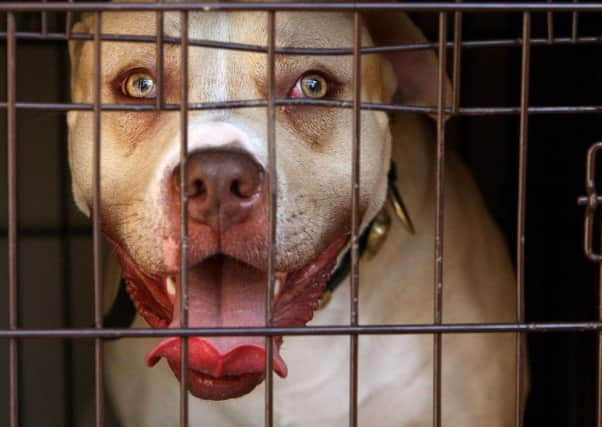Ban on '˜dangerous' breeds flawed, say experts


The dozen incidents involved dogs recorded as Pit Bull Terrier, Pit Bull-Staffordshire cross or Pit Bull type, all of which are banned by the Dangerous Dogs Act.
But the idea that certain dogs are dangerous by virtue of their breed remains controversial.
Advertisement
Hide AdAdvertisement
Hide AdCritics argue the behaviour and not the appearance of a dog should be the focus of legislation, with the current law failing to acknowledge the complex reasons why dogs can become aggressive.
But the government maintains that the ban on certain breeds continues to be necessary.
A spokesman for Department for Environment, Food and Rural Affairs said: “Prohibiting certain types of dog under the Dangerous Dogs Act is crucial to help deal with the heightened risk they pose. However, any dog can become dangerous if it is kept by irresponsible owners in the wrong environment, which is why the Act covers any type of dog that is dangerously out of control.”
The breeds banned in England and Wales are pit-bull types, Japanese Tosa, Fila Braziliero and the Dogo Argentino.
Advertisement
Hide AdAdvertisement
Hide AdPossessing them without a court exemption is a criminal offence with a penalty of up to six months in prison, an unlimited fine or both.
RSPCA dog welfare expert Dr Samantha Gaines said: “There is no scientific research to suggest the breeds and types of dogs which are banned under the Dangerous Dogs Act are any more aggressive towards people than other dogs. Aggression is very complex and breed is not a good predictor of risk. As well as unfairly punishing dogs for the way they look and seriously compromising dog welfare, Breed Specific Legislation (BSL) also lulls the public into a false sense of security that only these four types of dogs are dangerous.”
She said the charity would continue to campaign with others for an end to the “outdated and flawed” law and for the Government to hold a public inquiry into the use of BSL.